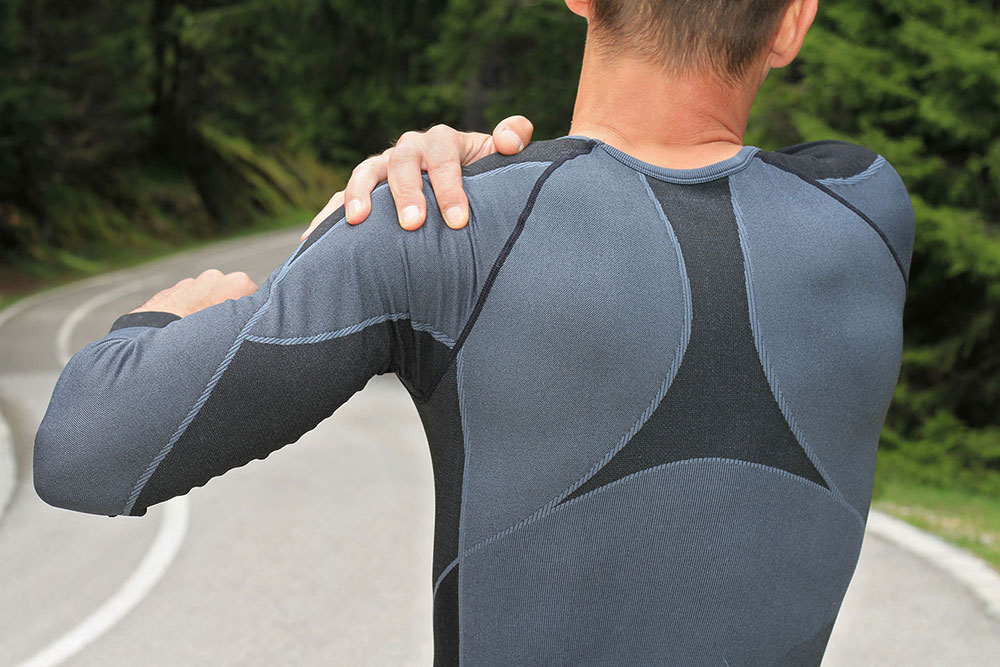Why Does My Shoulder Hurt When It Gets Cold?

Have you ever noticed how sometimes, when it’s cold outside, you suddenly get all these aches and pains? It’s not an urban legend or hypochondria. The temperature does affect our bodies. We know extreme weather can cause frostbite, but you don’t have to be in an arctic tundra to feel its harmful effects.
Think about what you do year-round, regardless of seasons. From constantly worrying about family and work responsibilities to carrying heavy bags of groceries, the cumulative effect is that most people carry a lot of stress in their necks and shoulders.
Add into the mix a few of the cold weather factors explained below, and it’s no surprise so many people experience increased pain.
What causes cold weather shoulder pain?
When the temperatures start to drop, it’s typical for people to hunch over and lift their shoulders in attempts to keep warm. While it may be laughable to our friends in the Northeast that we complain about “winter” in Florida, those of us who live here can feel a noticeable difference. This muscle constriction will make you feel pain more acutely.
There’s also the camp that pins the blame on barometric pressure. According to a Tufts University study conducted in 2007, when it gets colder, arthritis patients are likely to experience more pain.
This is because when the atmospheric weight is no longer pushing against us, body tissue expands. This, in turn, places additional pressure on joints.
Cold weather may also cause us to just want to bundle up in a cocoon and hibernate. This reduced movement causes muscle stiffness. If you’re already carrying extra stress around your shoulders, that’s where you’re going to feel it the most.
What can you do to reduce winter flare-ups?
Incorporating regular exercise into your routine will keep the blood flowing and alleviate joint pains. Free weights and resistance bands are excellent to strengthen your muscles and increases bone density. Exercise also reduces that muscle stiffness we mentioned above.
Stretching also helps. This is because many of our regular occurrences, such as picking up our children, sitting at a desk all day, or other activities of daily living result in tight shoulders. Doing stretching exercises will help you relieve the tension.
Applying heat packs and massages feel good and soothe achy muscles. However, be mindful that sometimes the problem may be more serious. If the issue is dislocation or a tear in your rotator cuff, you’ll need medical attention.
Contact Alexander Orthopaedics Associates for Shoulder Pain Treatment and Care that Works
At Alexander Orthopaedics, we incorporate comprehensive shoulder procedures into your treatment. If your pain requires surgery, take a moment to read our guide on what you need to know about shoulder replacement surgery. Call us or schedule an appointment online. With three locations within the Tampa Bay region, it’s easy to find one that’s close to your home or office. Let us take care of you. You’ll have one less burden to shoulder.
